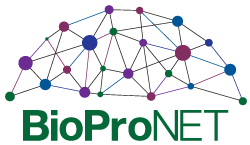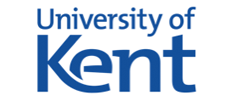Using big data and computational methods in bioprocessing
June 11th, University of Kent, Canterbury
9.30am (registration), 10am–5.00pm
The continuing advances in computational methods and the greater use of high throughput omics approaches has increased the potential for greater application of these methods in bioprocessing. This workshop will focus on a number of main areas including: 1) antibody design, 2) use of genetic variation when analysing CHO cells for biologics production 3) protein modelling to investigate properties such as aggregation and binding of host cell impurities to biologics.
Confirmed speakers include Charlotte Deane, University of Oxford, Mark Wass, University of Kent and Nicole Borth, Universität für Bodenkultur, Vienna, Austria.
For more details contact Mark Wass
To register: https://www.surveymonkey.co.uk/r/BioProNET_BigData
Travel: If you are coming by train via London, then Canterbury is less than one hour from London St Pancras. More travel details here https://www.kent.ac.uk/locations/canterbury/directions.html
The promise of genome editing: changing bioprocessing, manufacture and much more
18th June, Bradfield Centre, Cambridge Science Park, 11am–4pm
Confirmed speakers include Nicola McCarthy, Horizon Discovery; Mark Fife, Pirbright Institute; Lorenz Mayr, GE Healthcare and Claus Kristensen, University of Copenhagen.
Evolution is so ‘yesterday’ as we enter the revolution offered by genome editing. You may find this opinion provocative but if the cellular systems we have are not good enough for the functions needed, why should we not just build new ones by changing the genetic makeup of the cell, So far, so good… the promise remains but what is the reality of this hope? In this workshop we are bringing together expert opinion leaders from academia and industry to examine the likelihood of the expectations being translated to outcomes. Via short expert presentations and focused group discussions, the participants will examine how the potential of genome editing to change the manufacture of bio-based products may be enhanced and the practical consequences of such interventions from a commercial perspective.
Registration link and more information: http://app1.horizondiscovery.com/biopronet-2018-event-application
Bioprocess Intensification
July 4th, University College London 9.30am–5.30pm
The continued growth of the biopharmaceutical industry is being challenged by a greater number and variety of products than in the past. The industry is also increasingly concerned with the affordability of these products. These key factors means process intensification has become a critical objective. The goal is higher productivity processes to enable small process trains, resulting in cost-effective, lean, and agile manufacturing facilities. The symposium assembles 8 leaders from the biopharmaceutical industry and academia (Line Lundsberg-Nielsen (NNE), Hani El-Sabbahy (3M/UCL), Ajoy Velayudhan (UCL) Peter Levison (Pall), Will Lewis (GSK), Jonathan Souquet (Merck KGaA), John Welsh (Pall) Suzy Farid (UCL)) who will present their latest findings and opinions on the subject. By bringing together scientists and engineers from academia and industry who are actively engaged in bioprocess intensification the event will provide forum for lively debate.
Registration here: https://www.surveymonkey.co.uk/r/BioProNET_BioprocessIntensification
The programme is available here
Directions: https://www.ucl.ac.uk/maps/jz-young-lt







